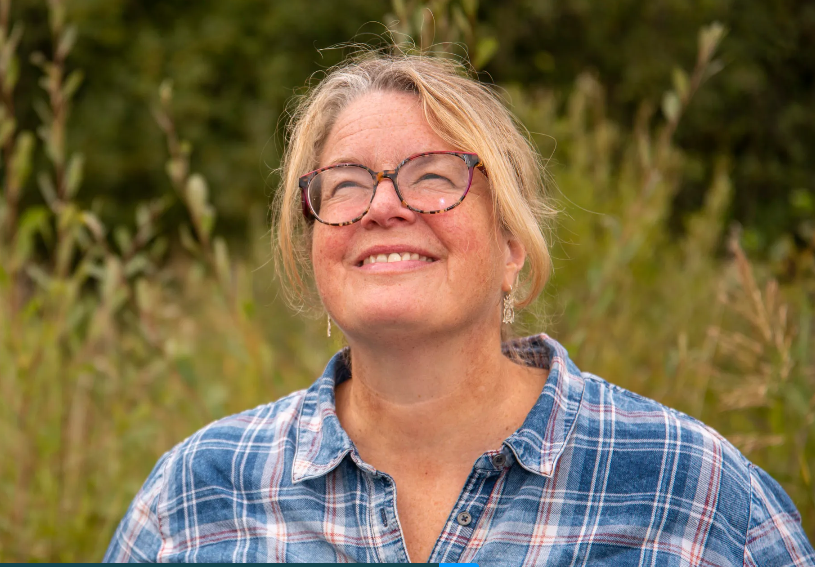October 2023
Our wildlife here in the UK is better studied than in any other country in the world. What that data is telling us should really make us sit up and listen. Last month the latest State of Nature report was published - the most up to date and accurate picture we have of how our nature is doing throughout the UK. It brings together information from more than 60 research and conservation organisations, with thousands of professionals and skilled volunteers taking part in collecting the data. The results make sombre reading.
Overall, one in six species is now threatened with extinction across England, Wales, and Scotland. The abundance of species has fallen on average by a fifth since the 1970s and the distribution of flowering plant species and bryophytes has decreased by more than half. What’s causing this? The main drivers of this continuing decline are climate change, the intensification of agriculture, overfishing and marine development. Across the UK, just a fifth of farmland is in an agri-environment scheme, less than half of our woodland is certified as sustainably managed, only half of our marine fish stocks are sustainably harvested, just 11% of our land is a protected area for nature (and less than half of that is in favourable condition) and only a quarter of our peatlands are in good condition.
The UK is one of the most nature-depleted countries on Earth, yet these devastating declines are still happening and progress so far to protect the wildlife and wild places we love has been nowhere near sufficient. The report’s findings only add to the sense of urgency that we need to take action now - nature can’t wait any longer.
We know the solutions.
As Chief Executive of the RSPB I’ve seen first-hand that conservation works. When we take action to restore wildlife habitat and save species, nature can bounce back. But now we need to do this on a much bigger scale and more urgently, moving as a whole society towards nature-friendly land and sea use. If we don’t, quite simply, the wildlife and natural landscapes and seascapes across the UK will continue to decline and degrade.
To see change on this sort of scale, we need politicians of all parties to act and put the right policy frameworks and the right funding in place. Our Nature Can’t Wait campaign is calling for nature to be put at the heart of decision-making and for politicians to immediately implement the solutions that will give nature a chance to recover.
Five ways to bring back nature
In England, the five solutions we’re asking government to commit to mirror those of Wildlife and Countryside Link’s Nature 2030 campaign, launched in July this year. These are:
1. Increase funding for nature-friendly farming
In England 69 per cent of land is farmed. For nature to recover, making more space for it on farmland must be at the heart of the way we produce food. Incomes in many parts of the agricultural sector are low, so support must be increased to enable the switch to nature-friendly farming while improving the lot of farmers. This should reduce intensive methods and chemical use, and help nature to return, bringing other benefits with it in the form of better air and water quality and increasing access to nature.
2. More spaces protected for nature
Too few places are protected for nature. Many that are supposed to be are in poor condition, with a large number fragmented or cut off. In England, just seven per cent of land is protected and only just over a third of that is in good condition. This is just a small fraction of the government’s commitment to protect 30 per cent of land and sea for nature by 2030.
3. Green jobs
Halting nature’s decline will take a lot of work, to restore habitats and recover species. This should be funded and resourced through a new National Nature Service, which would provide a training programme so there are sufficient skilled people to carry out this scale of activity, helping more wild spaces to thrive. It needs to include targeted paid work opportunities for young people and marginalised communities to support those who really need jobs to find fulfilling careers.
4. Make polluters pay
Major economic sectors, including finance, retail and energy, contribute to nature’s decline. The polluters should be expected to pay for and contribute to nature’s recovery. This will increase the resources available for protecting and restoring habitats, to support the creation of new jobs and generate greater investment in nature’s recovery.
5. Give everyone free, easy access to good quality nature
The vast majority of people (90 per cent) think access to nature is important for their health. But, in England, 38 per cent do not have a green space within 15 minutes’ walk of their home. Environmental deterioration has significant public health consequences. Lives are shortened by air pollution, people fall ill from poor water quality and community wellbeing declines where there are fewer accessible, good quality natural spaces. An Environmental Rights Bill would establish a human right to a healthy environment. This would lead to public bodies making more positive decisions for nature, saving the NHS and social care billions of pounds, and improving health outcomes for millions.
Use your voice
I know many of you will already have answered the Nature Can’t Wait campaign’s call to speak up and help persuade our politicians to commit to implementing these solutions. Thank you. Please ask your members or supporters to do the same. If you haven’t yet, there’s still time to contact your MP by email or on social media, please find details on the link below.
Together we have the power to influence our elected representatives to do the right thing for nature and to act before it is too late.
You can add your voice to the Nature Can't Wait campaign here

Beccy Speight, RSPB Chief Executive
Latest Blog Posts